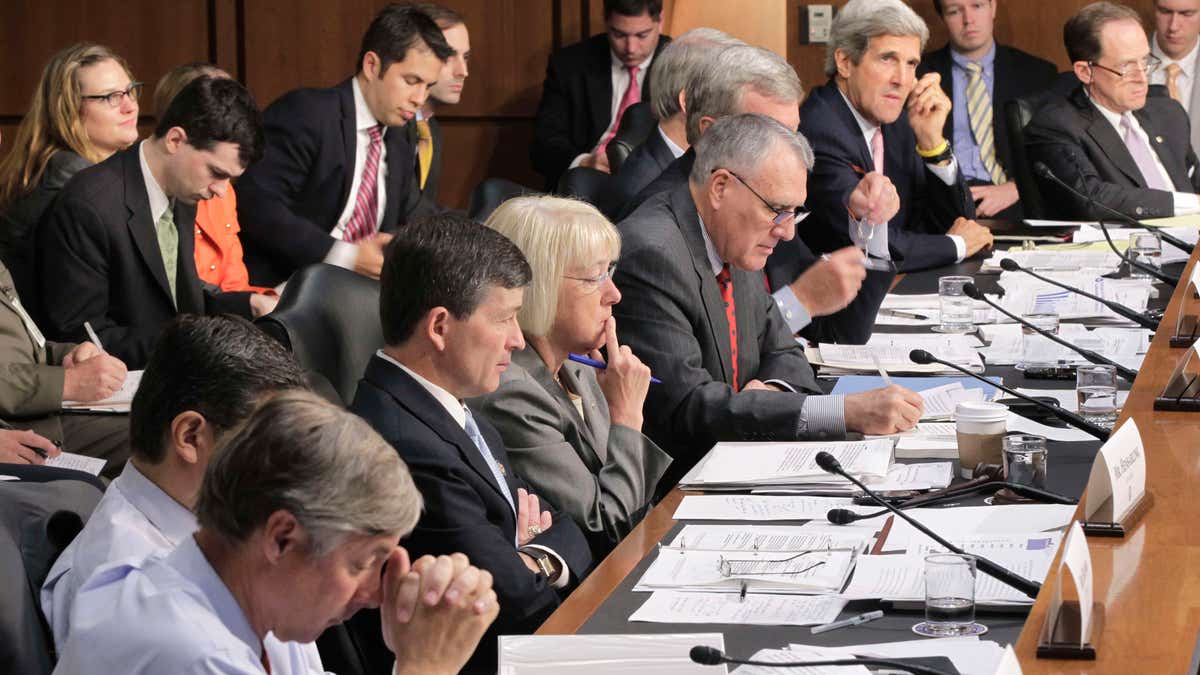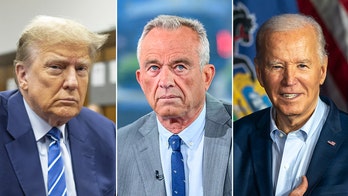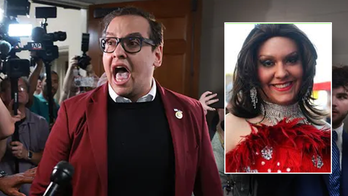
The Joint Select Committee on Deficit Reduction, led by Co-Chairs Rep. Jeb Hensarling, R-Texas, and Sen. Patty Murray, D-Wash., center, meets on Capitol Hill in Washington, Tuesday, Sept. 13, 2011. (2011 AP)
Hiding behind closed doors may be an attempt to actually get something done, but the secrecy of the so-called congressional “super committee” tasked with finding $1.2 trillion in deficit reductions over the next 10 years is drawing scorn from fellow lawmakers who want the process to be more open.
Sen. Dean Heller unveiled a bill last month to open up the talks, though it's unlikely to get action in the next five weeks the panel has left to come up with a plan. Sen. Maxine Waters, D-Calif., introduced a bill last week to end the “secret” super committee.
Others say they're dropping their suggestions to the panel members as much as possible. The committee has reportedly received nearly 180,000 requests from lawmakers, special interests and average taxpayers.
The super committee was created as part of a budget deal in August that increased the nation’s legal borrowing limit. Since the 12-member panel convened in early September, lawmakers have held their meetings behind closed doors, revealed little to nothing about what has been discussed and have answered no questions. But they did hold a public hearing last month and plan to hold another next Wednesday. They have also launched a website to take public suggestions.
The committee has until November to identify the $1.2 trillion in savings over the next decade. Then Congress would take up the bill without amendments. If lawmakers are unable to reach a deal, automatic spending cuts across the board will be triggered.
Heller has repeatedly called for the super committee to be transparent, including at a news conference last month also featuring Rep. Vern Buchanan, R-Fla., Sens. David Vitter, R-La., Mike Lee, R-Utah, Kelly Ayotte, R-N.H., John Boozman, R-Ark., and Ron Johnson, R-Wis.
“We cannot allow this committee to dissolve into a super-secret committee – its responsibility is much too great,” he said at the time.
“The American people have a right to know how their government is planning to spend taxpayers’ dollars.”
Heller and those five other senators also wrote to Senate leadership in August demanding that the super committee proceed in the open.
Rep. Jeb Hensarling, co-chairman of the committee, said in his opening statement at the organizational meeting last month that the standards rules of Congress would apply to the process.
“As we proceed, like any other committee in Congress, there will be public hearings,” he said. “There will be ample opportunities for the public to have their opinions heard. And like any other committee of Congress, there will also be some discussions among members that will not be public. However, no final product will be adopted without ample public notice and a public vote.”
But that hasn’t quelled dissatisfaction over how the committee has proceeded and what the committee is proceeding over.
Waters wants to eliminate the committee entirely and introduced her bill last Friday.
“The committee is an illegitimate shell game which poor and middle class Americans will lose,” she said in a statement. “It flies in the face of basic principles of fairness and transparency. How can 12 people decide the fate of millions Americans behind closed doors with little to no input from Congress or the average citizen?”




